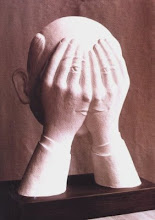Hace unos meses recibí un email de una mujer. Eso ya de por si ya es toda una novedad, porque a parte de tener excasísimos comentarios, recibo aun menos correos electrónicos. El contenido de dicho email venía a poner de manifiesto su descontento porque había tomado la foto de su hijo para una de mis entradas y ni siquiera había puesto la dirección de su blog (o pagina web, no lo recuerdo con exactitud).
Mi respuesta fue que lamentaba lo sucedido, pero que yo ni siquiera habia entrado en su web, simplemente había entrado en google imágenes y la había tomado de allí. Le aconseje que en lo sucesivo pusiera un marco sobre sus fotos, de ese modo cualquiera que las descargase vería su origen (ya que yo nunca edito las fotos que descargo, siempre las dejo tal cual). La otra alternativa seria litigar con google para que no indexease su web, y de ese modo nadie pudiese descargar las fotos sin entrar en la web, pero esta vía se me antoja mas complicada.
En el proceso de intercambio de correos electrónicos surgió la polémica acerca de la propiedad intelectual sobre lo publicado en internet. Mi opinión es clara al respecto, creo que internet debe ser un lugar libre, donde todo lo que se publica pasa a ser de dominio de la humanidad. O así es como debería ser.
En esos momentos estaba leyendo un libro, Little Brother de Cory Doctorow, descargado de internet de forma gratuita, su propio autor facilita la descarga. Como preludio al libro escribe lo siguiente (lamento que este en ingles, pero no tengo ahora voluntad para ponerme a traducirlo).
THE COPYRIGHT THING
The Creative Commons license at the top of this file probably tipped you off to the fact that I've got some pretty unorthodox views about copyright. Here's what I think of it, in a nutshell: a little goes a long way, and more than that is too much.
I like the fact that copyright lets me sell rights to my publishers and film studios and so on. It's nice that they can't just take my stuff without permission and get rich on it without cutting me in for a piece of the action. I'm in a pretty good position when it comes to negotiating with these companies: I've got a great agent and a decade's experience with copyright law and licensing (including a stint as a delegate at WIPO, the UN agency that makes the world's copyright treaties). What's more, there's just not that many of these negotiations - even if I sell fifty or a hundred different editions of Little Brother (which would put it in top millionth of a percentile for fiction), that's still only a hundred negotiations, which I could just about manage.
I hate the fact that fans who want to do what readers have always done are expected to play in the same system as all these hotshot agents and lawyers. It's just stupid to say that an elementary school classroom should have to talk to a lawyer at a giant global publisher before the put on a play based on one of my book's. It's ridiculous to say that people who want to "loan" there electronic copy of my book to a friend need to get a license to do so. Loaning books has been around longer than any publisher on Earth, and it's a fine thing.
I recently saw Neil Gaiman give a talk at which someone asked him how he felt about piracy of his books. He said, "Hands up in the audience if you discovered your favorite writer for free - because someone loaned you a copy, or because someone gave it to you? Now, hands up if you found your favorite writer by walking into a store and plunking down cash." Overwhelmingly, the audience said that they'd discovered their favorite writers for free, on a loan or as a gift. When it comes to my favorite writers, there's no boundaries: I'll buy every book the publish, just to own it (sometimes I buy two or three, to give away to friends who must read those books). I pay to see them live. I buy t-shirts with their book-covers on them. I'm a customer for life.
...
El señor Doctorow continua con lo que a mí me parecen las palabras más acertadas que he escuchado sobre el tema por parte de un autor (os recomiendo que leáis al menos esa introducción, aunque el libro en sí también merece la pena), que se resumirían en:
NO POR DESCARGAR MENOS UN CONSUMIDOR VA A GASTAR MÁS
Precisamente puede darse fácilmente el caso contrario, el hecho de descargar algo hace conocer dicho producto al consumidor que de otro modo bien pudiese no haberse acercado jamás a dicho producto.
PD: ¿Cómo encontraría mi blog la mujer?


No hay comentarios:
Publicar un comentario